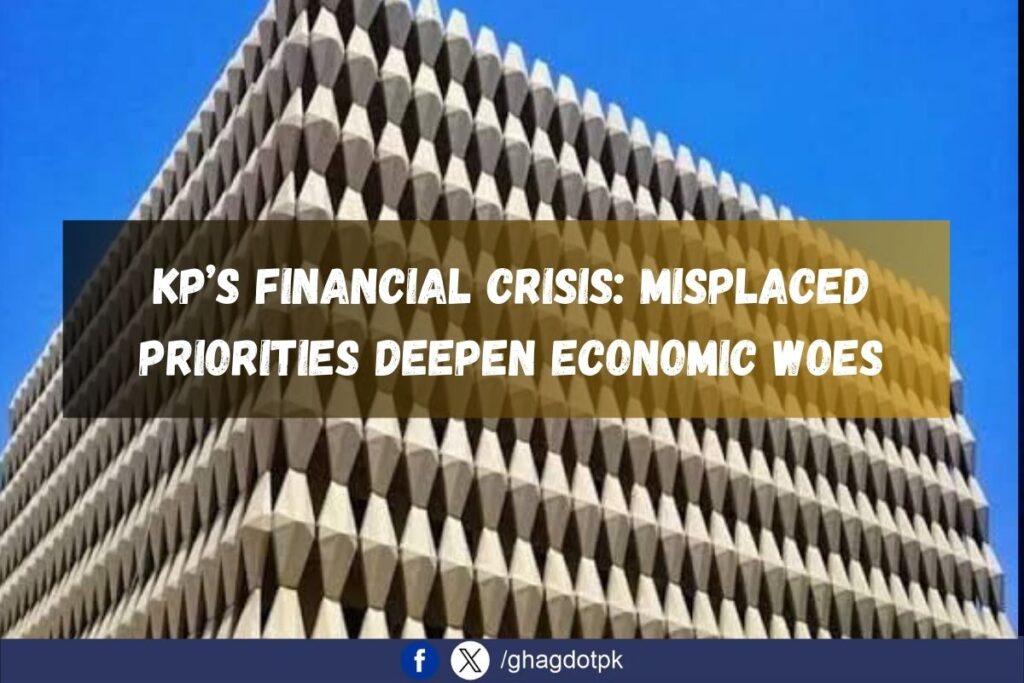Peshawar (Ghag Report):
Khyber Pakhtunkhwa’s provincial government faces mounting criticism over the alleged misuse of public resources, as significant funds are reportedly being spent on politically motivated activities rather than addressing the region’s pressing socio-economic challenges.
The economic strain on the province is evident. With millions reportedly funneled into organizing political protests, critics say the leadership has diverted essential resources away from vital public services. This mismanagement is amplifying the already dire economic conditions in KP, leaving infrastructure, healthcare, and education grossly underfunded.
Development Delayed, Welfare Ignored
While KP’s government appears focused on political theatrics, residents in key districts such as Bannu, Dera Ismail Khan, and North Waziristan continue to face underdevelopment. Reports indicate funds earmarked for development projects in these areas have been redirected to cover costs associated with ongoing political agitation. Projects to improve healthcare facilities in Peshawar and Swat have been delayed indefinitely, with authorities citing “budget constraints.”
The province is currently ranked among the lowest in Pakistan in terms of public health indicators. According to recent data, KP has a doctor-to-patient ratio of 1:1,200, significantly below the World Health Organization’s recommended ratio of 1:1,000. Meanwhile, almost 35% of schools in the province lack basic facilities such as electricity and drinking water.
Debt and Revenue Challenges
Economic experts warn that KP’s financial health is deteriorating rapidly. Over the past two years, the province’s debt has surged by 40%, reaching an alarming Rs. 900 billion. Compounding the issue is a stagnation in revenue generation, which has failed to grow in proportion to the province’s rising expenditures. KP’s own tax collection contributes less than 5% to its budget, making it heavily reliant on federal transfers that are insufficient to meet its growing needs.
One senior economist highlighted, “The economic mismanagement is staggering. Misplaced spending priorities are pushing KP further into financial instability while neglecting the basic needs of its people.”
Public Resentment on the Rise
This alleged misuse of funds has sparked widespread discontent among the Pushtun population. Civil society organizations have criticized the provincial leadership for what they describe as the exploitation of KP’s limited resources for political gain. “These protests are a distraction from the real issues. The people of KP need schools, hospitals, and jobs—not rallies,” stated a prominent rights activist.
Local analysts warn that this growing frustration could have electoral consequences for the ruling party, as many believe its governance has failed to deliver on its promises of reform and transparency.
The Path Forward
As KP struggles to cope with economic mismanagement and social stagnation, experts emphasize the urgent need for a shift in governance priorities. Reallocating resources to essential sectors such as health, education, and infrastructure is critical to restoring public trust and revitalizing the province’s economy.
The question remains: will the leadership heed these calls, or will KP continue its descent into financial chaos? For now, the people of KP are left waiting for meaningful action amid mounting crises.






